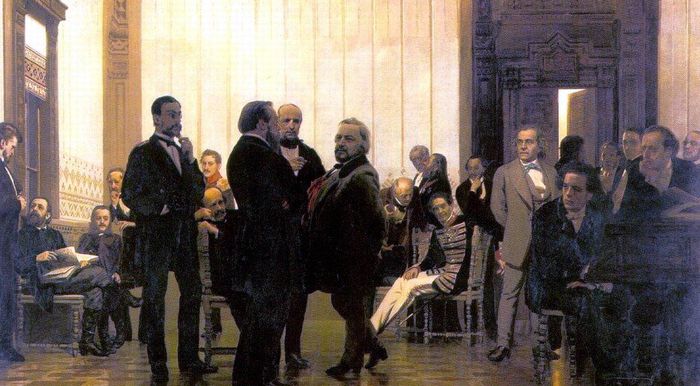Father Ignatius shoulders shivered, and he lowered his eyes upon the grave of Vera. He gazed long upon the little tufts of grass uprooted together with the earth from some, open, wind-swept field and not successful in adapting themselves to a strange soil; he could not imagine that there, under this grass, only a few feet from him, lay Vera.
And this nearness seemed incomprehensible and brought confusion into the soul and a strange agitation. She, of whom Father Ignatius was accustomed to think as of one passed away forever into the dark depths of eternity, was here, close by and it was hard to understand that she, nevertheless, was no more and never again would be.
And in the minds fancy of Father Ignatius it seemed that if he could only utter some word, which was almost upon his lips, or if he could make some sort of movement, Vera would issue forth from her grave and arise to the same height and beauty that was once hers. And not alone would she arise, but all corpses, intensely sensitive in their solemnly cold silence.
Father Ignatius removed his wide-brimmed black hat, smoothed down his disarranged hair and whispered:
“Vera!”
Father Ignatius felt ill at ease, fearing to be overheard by a stranger, and stepping on the grave he gazed around him. No one was present, and this time he repeated loudly:
“Vera!”
It was the voice of an aged man, sharp and demanding, and it was strange that a so powerfully expressed desire should remain without answer.
“Vera!”
Loudly and insistently
Loudly and insistently the voice called, and when it relapsed into silence, it seemed for a moment that somewhere from underneath came an incoherent answer. And Father Ignatius, clearing his ear of his long hair, pressed it to the rough, prickly turf.
“Vera, tell me!”
With terror, Father Ignatius felt pouring into his ear something cold as of the grave, which froze his marrow; Vera seemed to be speaking, however, with the same unbroken silence.
This feeling became more racking and terrible, and when Father Ignatius forced himself finally to tear away his head, his face was pale as that of a corpse, and he fancied that the entire atmosphere trembled and palpitated from a resounding silence, and that this terrible sea was being swept by a wild hurricane. The silence strangled him; with icy waves it rolled through his head and agitated the hair; it smote against his breast, which groaned under the blows.
Read More about Isaac Comnenus 26








